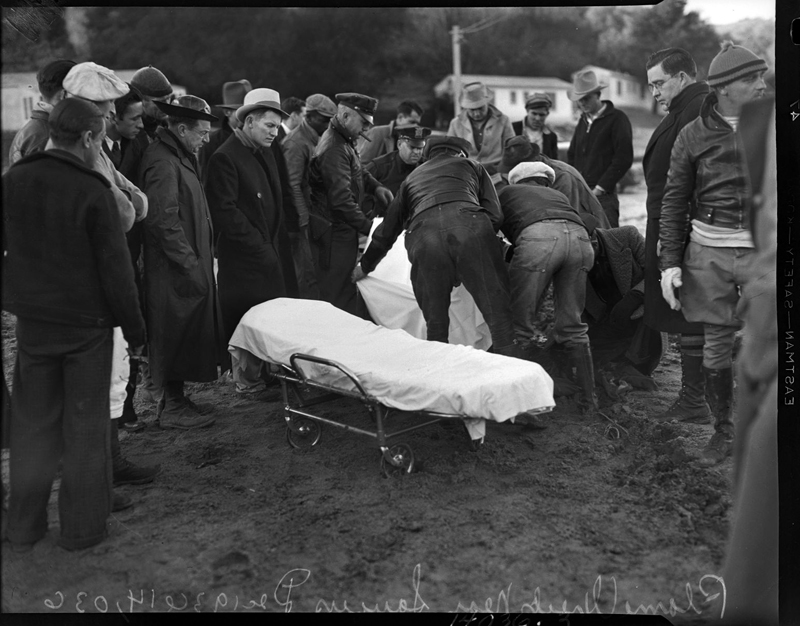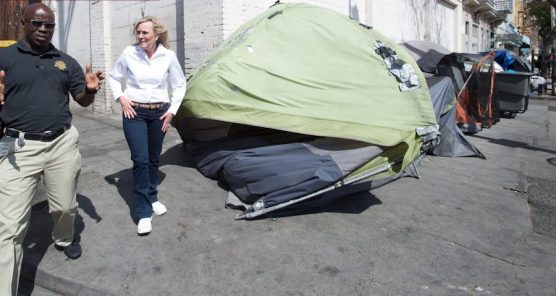Los Angeles County Supervisor Kathryn Barger, whose 5th District includes the Santa Clarita Valley, released the following statement Thursday in response to Gov. Gavin Newsom’s unveiling of his Care Court plan, which would empower Californians in crisis to access housing, treatment, and care. It would also hold individuals and local governments accountable with court orders for services.
“I commend Governor Newsom’s efforts to bring healing to the indigent individuals living with debilitating mental illness on our streets,” Barger said. “We need a coordinated and consistent approach to help these individuals, and Care (Community Assistance, Recovery, and Empowerment) Court is poised to deliver that through the courts system.
“Certainly, the onus of providing comprehensive treatment will fall on counties’ shoulders. This will require an investment in resources and infrastructure. I look forward to working through those details when the time comes.
“But what’s crystal clear right now is that severe mental illness doesn’t resolve itself. Until we take a firm approach, the homelessness crisis and suffering will continue to grow.
“I have spent years advocating for changes to the state’s mental health laws. Care Court provides a new pathway to providing humane services to our most vulnerable population — an approach rooted in today’s reality.
“How many times have we walked by someone who is clearly having a psychotic episode, witnessing a crisis without being able to help? It’s time to stop looking away and do something about it.”
Earlier Thursday, Newsom unveiled CARE Court at a mental health treatment center in San Jose. The new framework plans to provide individuals with mental health and substance use disorders the care and services they need to get healthy. The proposal, which must be approved by the Legislature, would require counties to provide comprehensive treatment to the most severely impaired and untreated Californians and hold patients accountable to their treatment plan.
“CARE Court is about meeting people where they are and acting with compassion to support the thousands of Californians living on our streets with severe mental health and substance use disorders,” said Newsom. “We are taking action to break the pattern that leaves people without hope and cycling repeatedly through homelessness and incarceration. This is a new approach to stabilize people with the hardest-to-treat behavioral health conditions.”
CARE Court does not wait until someone is hospitalized or arrested before providing treatment. CARE Court will provide an opportunity for a range of people, including family members, first responders, intervention teams, and mental health service providers, among others, to refer individuals suffering from a list of specific ailments, many of them unhoused, and get them into community-based services.
“It’s time we face the painful, but obvious truth: our behavioral health system in California is broken. All of us see it every day on our streets – and it’s long past time we fix it,” said San Diego Mayor Todd Gloria. “Governor Newsom’s CARE Court proposal is a major step forward. It will provide individuals who are struggling with behavioral health issues a pathway to the housing and health services they need and give those who encounter these individuals a real way to get them the help they need. I look forward to working with the Governor and my municipal colleagues to implement a working program at the local level.”
“Governor Newsom’s groundbreaking CARE Court proposal breaks through on a key missing piece of the homeless challenge,” said Sacramento Mayor Darrell Steinberg. “For people who are the sickest and most vulnerable on our streets, the governments responsible for helping them must be legally obligated to act.”
CARE Court offers court-ordered individualized interventions and services, stabilization medication, advanced mental health directives, and housing assistance – all while remaining community-based. Plans can be up to 12-24 months. In addition to their full clinical team, the client-centered approach also includes a public defender and a supporter to help individuals make self-directed care decisions.
“We need to stop trying to fix a failed system,” said Santa Clara County Superior Court Judge Stephen V. Manley. “We are rapidly moving back to where we were 100 years ago in using incarceration as the only alternative for those persons who are severely mentally ill. We need new ideas and a fresh approach and Governor Newsom is offering us one.”
“NAMI-Santa Clara County appreciates Governor Newsom’s initiative through the CARE Court program,” said Rovina Nimbalkar, Executive Director of NAMI-Santa Clara County. “With CARE Court in place, we’ll have a better opportunity to help struggling individuals start the road to recovery to a more fulfilling life.”
The CARE Court framework was created using the evidence that many people can stabilize, begin healing, and exit homelessness in less restrictive, community-based care settings. The plan focuses on people with schizophrenia spectrum and other psychotic disorders, who may also have substance use challenges, and who lack medical decision-making capacity, and advances an upstream diversion from more restrictive conservatorships or incarceration.
The framework provides individuals with a clinically appropriate, community-based and court-ordered Care Plan consisting of culturally and linguistically competent county mental health and substance use disorder treatment services. These include short-term stabilization medications, wellness and recovery supports, and connection to social services, including a housing plan. Services are provided to the individual through an outpatient model while they live in the community.
“Governor Newsom’s CARE Court Plan is a welcomed program for LA County,” said Los Angeles County Board of Supervisors Chair Holly J. Mitchell. “The City of Redondo Beach within my district has successfully implemented a similar program with their Homelessness Court. Under the Governor’s CARE Court program, LA County can expand this people centered model of prevention and support for our most vulnerable unhoused neighbors. This is a community approach to preventing justice involvement by connecting people to services over up to a 24-month period.”
“After 30-years in the field serving vulnerable individuals and experiencing difficulty in getting these individuals the appropriate level of care, I welcome the discussion around a definitive evaluation process and look forward to participating in discussions to find solutions that better serve this population,” said California Professional Firefighters President Brian K Rice.
In the event that a participant cannot successfully complete a Care Plan, the individual may be referred for a conservatorship, consistent with current law, with a presumption that no suitable alternatives to conservatorship are available.
All counties across the state will participate in CARE Court under the proposal. If local governments do not meet their specified duties under court-ordered Care Plans, the court will have the ability to order sanctions and, in extreme cases, appoint an agent to ensure services are provided.
CARE Court builds on Governor Newsom’s $14 billion multi-year investment to provide 55,000 new housing units and treatment slots and nearly $10 billion annually in community behavioral health services. The Governor’s approach focuses on quickly rehousing unsheltered individuals with behavioral health issues, all while new units come online, while also transforming Medi-Cal to provide more behavioral health services to people struggling the most.
Like this:
Like Loading...
Related





 Tweet This
Tweet This Facebook
Facebook Digg This
Digg This Bookmark
Bookmark Stumble
Stumble RSS
RSS


























REAL NAMES ONLY: All posters must use their real individual or business name. This applies equally to Twitter account holders who use a nickname.
0 Comments
You can be the first one to leave a comment.